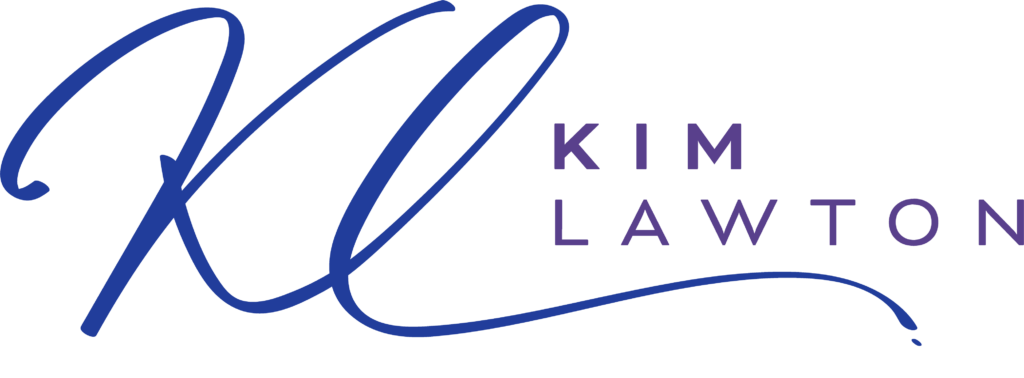Are healthy habits really possible when you’re constantly on the go? What’s the secret to making healthy habits stick in a demanding professional lifestyle? How can healthy habits improve your work performance and overall quality of life?
In a world where deadlines dominate and calendars overflow, it’s easy to believe there’s no time left for self-care. This blog dives into the real challenges professionals face—long work hours, back-to-back meetings, sedentary routines, poor eating habits, and high stress levels—and explains how neglecting healthy habits can actually lead to burnout, lower productivity, and long-term health risks. Instead of a massive lifestyle overhaul, it offers small, strategic shifts—like taking movement breaks, planning meals in advance, and setting work-life boundaries—that can create a ripple effect in your overall wellness.
From optimizing nutrition and integrating quick workouts into your day to prioritizing mental health and sleep quality, this blog lays out a roadmap for sustainable, realistic, healthy habits that work with your lifestyle, not against it. Whether you’re aiming to reduce stress, sharpen focus, or simply feel more energized, you’ll find practical tools and tech recommendations to help you embed healthy habits into even the busiest of schedules. This is your go-to guide for turning intention into action, because thriving professionally starts with taking care of yourself.
Between work responsibilities and our personal lives, each day can feel jam-packed. There are only so many hours in a day, and with how long our to-do lists can get, it can be hard to find a minute just to pause and breathe, let alone to stay committed to maintaining healthy habits.
From back-to-back meetings to family responsibilities, we’re hit with constant demands for our time and energy each day. We have to do what we have to do, and unfortunately, this is when self-care takes a backseat.
We push taking care of ourselves to the wayside to make time for our work and other tasks, thinking this makes us more efficient and productive. However, the irony is that neglecting our health and wellness in pursuit of more productivity ultimately leads to burnout, decreased performance, and even long-term health issues.
Prioritizing your health doesn’t mean overhauling your entire lifestyle and routine overnight. Instead, you can make significant changes just by making small, intentional choices each day that fit seamlessly into your busy schedule. Consistent acts you can stick to, like taking short movement breaks during the day and setting clear working hours to prioritize rest, can profoundly impact your well-being and professional success.
Believe it or not, healthy habits should be an essential part of your marketing operations, business strategy, and overall company processes. They’re just as important as setting a budget and getting to know your customers.
This blog will offer practical strategies for incorporating healthy habits, no matter how demanding your schedule is.
Table of Contents:
Understanding the Barriers to Healthy Living
- Time Constraints & Demanding Work Schedules
- Sedentary Lifestyles & Prolonged Screen Exposure
- Unhealthy Eating Due to Convenience Choices
- Stress & Its Impact on Overall Well-Being
Practical Strategies for Incorporating Healthy Habits
- Optimizing Nutrition in a Busy Schedule
- Incorporating Physical Activity Without Overhauling Your Routine
- Prioritizing Mental Well-Being & Stress Management
- Improving Sleep Quality for Better Performance
Leveraging Technology for Healthier Living
Understanding the Barriers to Healthy Living
Before diving into all the strategies and solutions for promoting health and wellness, it’s important to understand the different barriers to healthy living that people face.
Understanding the common obstacles and identifying which ones you’re facing can help you find realistic strategies that will actually work.
- Time Constraints & Demanding Work Schedules
- Sedentary Lifestyles & Prolonged Screen Exposure
- Unhealthy Eating Due to Convenience Choices
- Stress & Its Impact on Overall Well-Being
1. Time Constraints & Demanding Work Schedules
If you’re working a standard 9-5 and have a 40-minute commute, you’re likely pressed for time on the weekdays. In the mornings, you need time to wake up, get ready, and drive to work on time, considering traffic, weather, and other factors. Then, in the evenings, you likely get stuck in a bit of rush hour traffic, then when you get home, you have to make dinner, and if you have children, you have to care for them. You likely also have a handful of other tasks to complete before you get ready for bed to wake up and do it again tomorrow.
This schedule is not very flexible, making it hard to find time for healthy habits like meal prepping, exercising, or even just relaxing for a bit.
2. Sedentary Lifestyles & Prolonged Screen Exposure
According to the American Heart Association, sedentary jobs have increased 83% since 1950. Physically active jobs make up less than 20% of the U.S. workforce. To a certain point, a sedentary lifestyle has become almost unavoidable. Unfortunately, though, sitting too much or for too long can lead to poor health outcomes and diseases such as heart disease, diabetes, and high blood pressure. It can also lead to poor posture, back pain, and reduced circulation.
Moreover, most of today’s jobs occur behind a computer screen, and excessive screen time can also contribute to eye strain and mental fatigue.
3. Unhealthy Eating Due to Convenience Choices
Unfortunately, with our busy schedules, by the time our lunch break comes around, we’re so pressed for time that we end up relying on fast food, processed snacks, and high-sugar drinks for quick bursts of energy. We tell ourselves these choices are just easier and save us time, and while that may be true to a point, these choices come with consequences like energy crashes, long-term health issues, and generally not feeling our best.
4. Stress & Its Impact on Overall Well-Being
Research shows chronic stress can put you at a higher risk for health issues such as heart disease, high blood pressure, anxiety, depression, insomnia, and problems with memory and focus. In general, excess stress not only impacts your health but also causes your productivity and work performance to suffer.
Practical Strategies for Incorporating Healthy Habits
Incorporating more healthy habits into your daily routine doesn’t have to be complicated. In fact, it’s best to strive to find practices that make sense for you and easily fit into your schedule and lifestyle because these are the habits you’re most likely to stick to.
Generally, these are some go-to strategies that can help you incorporate healthier habits into your busy life:
- Optimizing Nutrition in a Busy Schedule
- Incorporating Physical Activity Without Overhauling Your Routine
- Prioritizing Mental Well-Being & Stress Management
- Improving Sleep Quality for Better Performance
1. Optimizing Nutrition in a Busy Schedule
Nutrition is a major health and wellness buzzword. Whether in the doctor’s office or on social media, health professionals constantly talk about nutrition—and for good reason! The phrase, “You are what you eat,” is absolutely true. If you’re trying to fuel your body with junk, you’re going to be left with a “junk” performance.
Poor nutrition leads to lower energy levels, more frequent illnesses, and decreased focus and cognitive clarity. Research from ChenMed found that those with poor eating habits are 66% more likely to be less productive at work.
Pulling into a drive-thru or opting for a fast, processed snack can be tempting when you’re just trying to make it through a busy day. However, one of the best ways to maintain healthy habits is to plan your meals in advance. Batch cooking on the weekends, prepping meals and healthy snacks, and storing everything in portioned containers can help eliminate last-minute unhealthy choices.
Your snacks and meals should also be nutrient-dense, particularly when you have limited time and need something quick yet healthy and rich in nutrients. Consider opting for a smoothie with protein powder, greens, and healthy fats or pre-cut veggies and hummus.
Hydration is also a key element of nutrition. Dehydration leads to fatigue and reduced cognitive function. You should always keep a reusable water bottle with you and set goals to fill it several times throughout the day.
2. Incorporating Physical Activity Without Overhauling Your Routine
Finding time to work out may feel impossible if you’re working that jam-packed 9-5 schedule I mentioned earlier. However, even when your work day is busy, making time for movement is still possible; you just have to be intentional and strategic about it.
Long periods of sitting can have significant adverse health implications, ranging from back pain to heart disease. Some research indicates you should take an activity or movement break every 30 minutes if you can. You can work in these short movement breaks by standing up and stretching at your desk, taking your meeting on a walk rather than sitting in a conference room, or using a standing desk to avoid sitting for too long. If possible, you could also leverage your commuting time to work in extra movement by biking or walking to work. If that’s not feasible, you could park your car further away in the lot to get some additional steps or take the stairs rather than the elevator.
There are also several efficient workouts that fit very well in a busy lifestyle—that way, a lack of time doesn’t become a reason for skipping exercise. Consider trying:
- HIIT (High-Intensity Interval Training): These short yet effective workouts deliver results in as little as 15 minutes, mimicking what you could achieve with a traditional 30-40-minute workout.
- Micro Workouts: These are small bursts of movement, such as 10 squats or push-ups between meetings or other to-dos.
- Lunchtime Walks: A brisk 20-minute walk can improve your circulation and work wonders for reducing stress and boosting your focus. In our office, we have something called the “walkie-talkie,” where we have our 1:1 check-ins during a walk to encourage everyone to get away from their desk and get some movement in during the work day.
3. Prioritizing Mental Well-Being & Stress Management
Unfortunately, our busy lives are often accompanied by stress. That’s why mindfulness practices and stress management are essential healthy habits that need to be integrated.
Mindfulness practices don’t have to involve hours of meditation or spa days. Simple breathing exercises, such as box breathing or just breathing deeply, can quickly reduce stress and improve focus.
Setting boundaries is another key healthy habit for managing stress and preventing burnout. The boundaries you set will vary depending on your schedule and situation. They could include setting clear working hours and not checking emails outside of those hours, scheduling non-negotiable personal time, and learning to say no to tasks that compromise your well-being.
Again, taking regular breaks is another worthwhile practice for managing stress and boosting productivity and performance. Consider the Pomodoro technique—working in 25-minute intervals with 5-minute breaks. Strategies like this can help you enhance efficiency and recharge mentally between tasks.
4. Improving Sleep Quality for Better Performance
How often have you stayed up too late to finish a project? At the moment, it can feel like burning the midnight oil is the best use of your time, but it can catch up with you fast and have consequences on your well-being.
Quality sleep is essential for cognitive function and overall wellness. Poor sleep or a lack thereof can also have significant health impacts. Research from Johns Hopkins Medicine found those who don’t get enough quality sleep have a 48% increased risk of developing heart disease, an increased risk of high blood pressure, a 33% increase in dementia risk, and are three times more likely to get a cold. If that’s not reason enough to avoid sleep deprivation, a lack of sleep can also age your brain three to five years.
To improve your sleep quality, try implementing these healthy habits:
- Aim for seven to nine hours of sleep each night.
- Stick to a consistent bedtime and wake up at the same time each day, even on weekends.
- Reduce screen time before bed, as blue light can disrupt melatonin production. Instead, try reading a book rather than scrolling on your phone.
- Optimize your sleep environment, ensuring your room is cool, dark, and quiet, free from work-related distractions, and equipped with a comfortable mattress and pillows.
Leveraging Technology for Healthier Living
Integrating more healthy habits into your busy routine can feel daunting, but luckily, you don’t have to do it all alone. Technology can be a powerful tool for maintaining a healthy lifestyle with the help of various apps and platforms. Some of the most common health-focused tech solutions you can try include:
- Nutrition-Tracking Apps: Apps like MyFitnessPal track your meals and nutrition, helping you monitor your intake and reach your goals and even offering suggestions for improvements.
- Meditation & Mindfulness Apps: Platforms like Headspace and Calm are great for guided meditations and stress relief.
- Workout Apps: FitOn, Nike Training Club, and even YouTube offer a variety of guided workouts that are easily accessible anywhere, anytime.
- Wearable Devices: Apple Watches, Fitbits, and Oura Rings are all great options for tracking your health metrics, including your steps, sleep, and heart rate.
Conclusion
Balancing health with a demanding professional schedule is challenging but entirely possible with the right approach. By making small, sustainable changes, you can integrate long-lasting healthy habits that enhance your well-being and productivity, such as planning nutritious meals, incorporating short bursts of movement, setting work-life boundaries, and improving sleep hygiene.
Health is not a luxury; it’s a necessity for long-term success. By prioritizing your physical and mental well-being, you’ll not only perform better at work but also enjoy a higher quality of life. Getting started is the hardest part of making a change. Start small, stay consistent, and remember that even the busiest professionals can lead a healthier, more balanced life.




